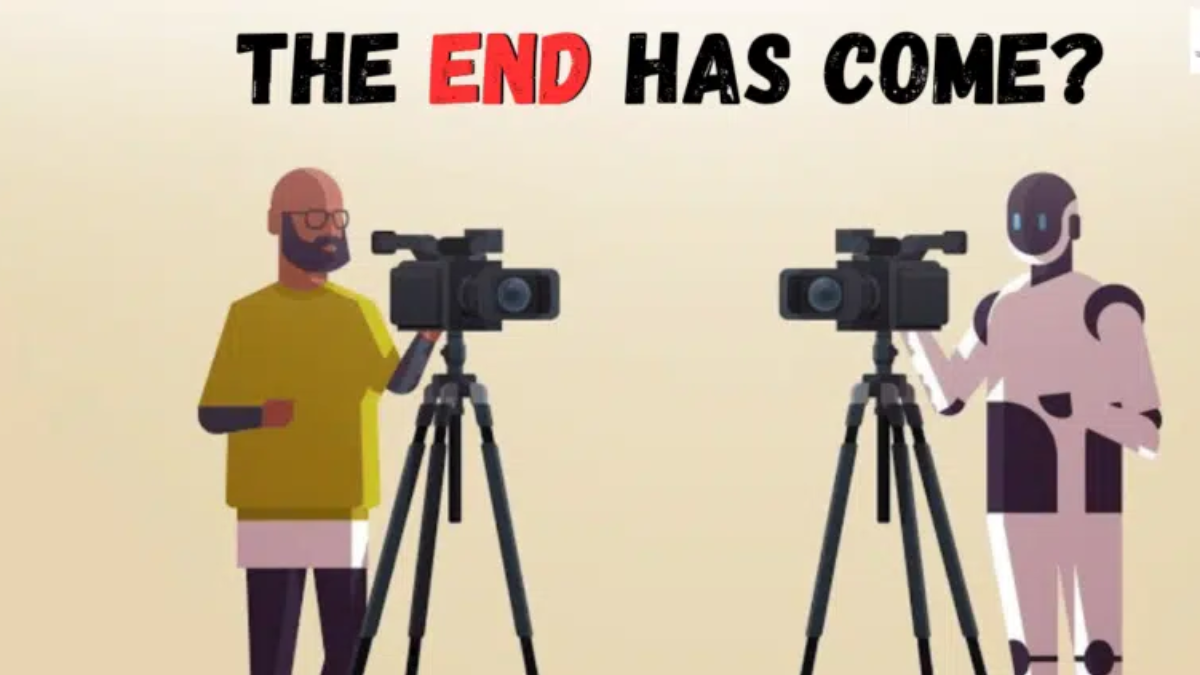1st June 2023, Mumbai: Artificial intelligence (AI) has been revolutionizing various industries, from healthcare to transportation, and now it is making its mark on the world of films and film making. As AI continues to advance and become more sophisticated, it is expected to have a profound impact on the future of the film industry, reshaping the way movies are created, distributed, and consumed.
One of the most significant areas where AI is already making waves is in the realm of visual effects (VFX) and computer-generated imagery (CGI). Traditionally, VFX and CGI were time-consuming and required a team of skilled artists to create realistic and captivating effects. However, AI-powered tools and algorithms are now being developed that can automate many of these processes. With the help of AI, filmmakers can achieve stunning visual effects more efficiently and at a fraction of the cost.
AI is also being used to enhance the creative process of film making. For instance, AI algorithms can analyze vast amounts of data, such as box office performance, audience preferences, and critical reception, to assist filmmakers in making informed decisions about casting, script development, and marketing strategies. This data-driven approach can help reduce the risk associated with film production and increase the chances of creating successful and profitable movies.
Furthermore, AI is influencing the way films are distributed and marketed. With the rise of streaming platforms and online video-on-demand services, AI algorithms are employed to analyze user data and provide personalized recommendations to viewers. These algorithms can identify patterns in viewers’ preferences and suggest films that align with their tastes, thereby enhancing the overall viewing experience. AI also plays a role in targeted marketing, allowing filmmakers to reach their desired audience more effectively and maximize the impact of their promotional campaigns.
Another exciting application of AI in film making is the use of generative algorithms to create original scripts and storylines. By analyzing large datasets of existing films, AI can generate unique narratives, characters, and dialogues. While AI-generated scripts are not yet on par with human-written ones, they can serve as a valuable starting point for filmmakers, sparking creativity and offering new ideas.
However, as AI becomes more integrated into the film industry, it raises some ethical and artistic concerns. One major concern is the potential loss of human creativity and artistic expression. Filmmaking has long been a highly creative and subjective endeavor, and some worry that relying too heavily on AI could lead to a homogenization of films, with formulas and algorithms dictating storytelling choices rather than human intuition and emotion.
Additionally, there are concerns about the impact of AI on employment within the film industry. As AI automates certain tasks, it may lead to the displacement of some jobs traditionally held by humans. However, it is worth noting that AI also creates new opportunities and roles, such as AI engineers, data analysts, and creative technologists, which can complement and enhance the work of human filmmakers.
AI is undoubtedly poised to shape the future of films and film making. From revolutionizing visual effects and CGI to optimizing distribution and marketing strategies, AI offers numerous possibilities to improve the efficiency and creativity of the film industry. However, striking a balance between AI automation and human creativity will be crucial to ensure that films continue to captivate audiences with their unique stories and emotional depth. The future of film making lies in the synergy between AI and human filmmakers, harnessing the power of technology to push the boundaries of imagination and storytelling.


